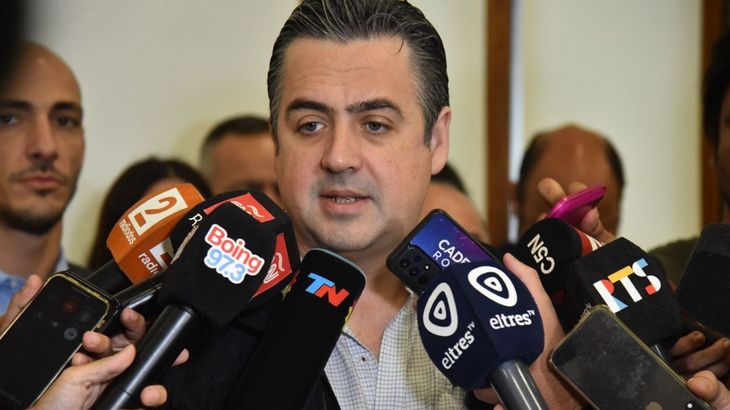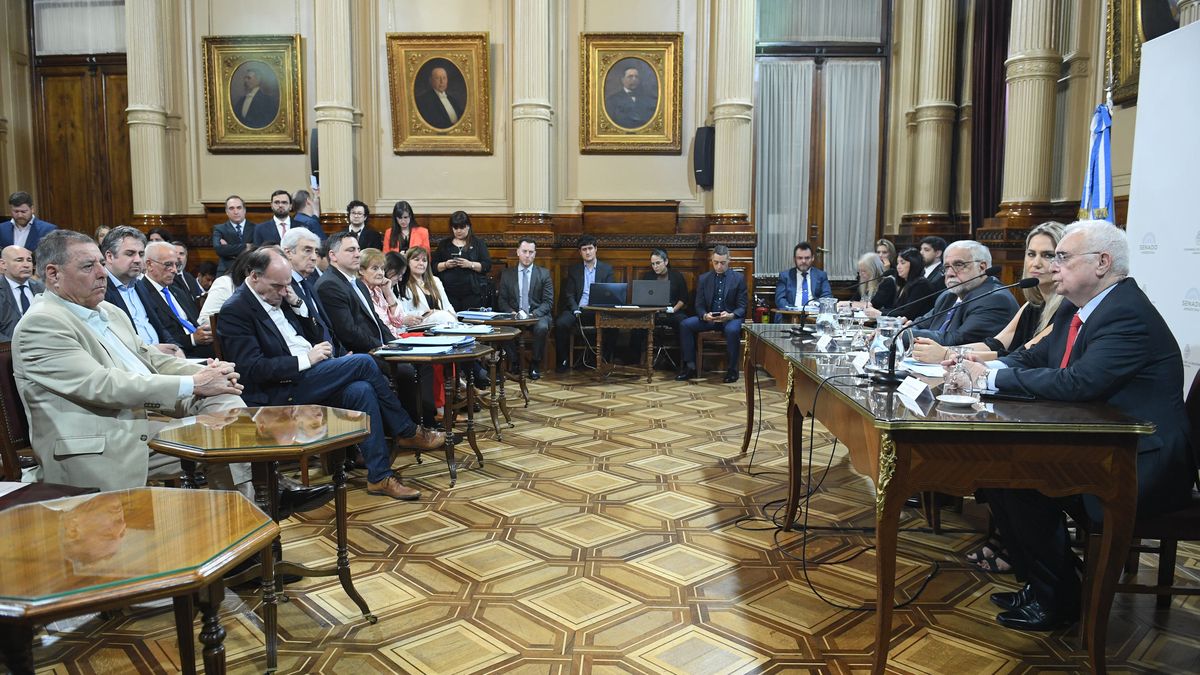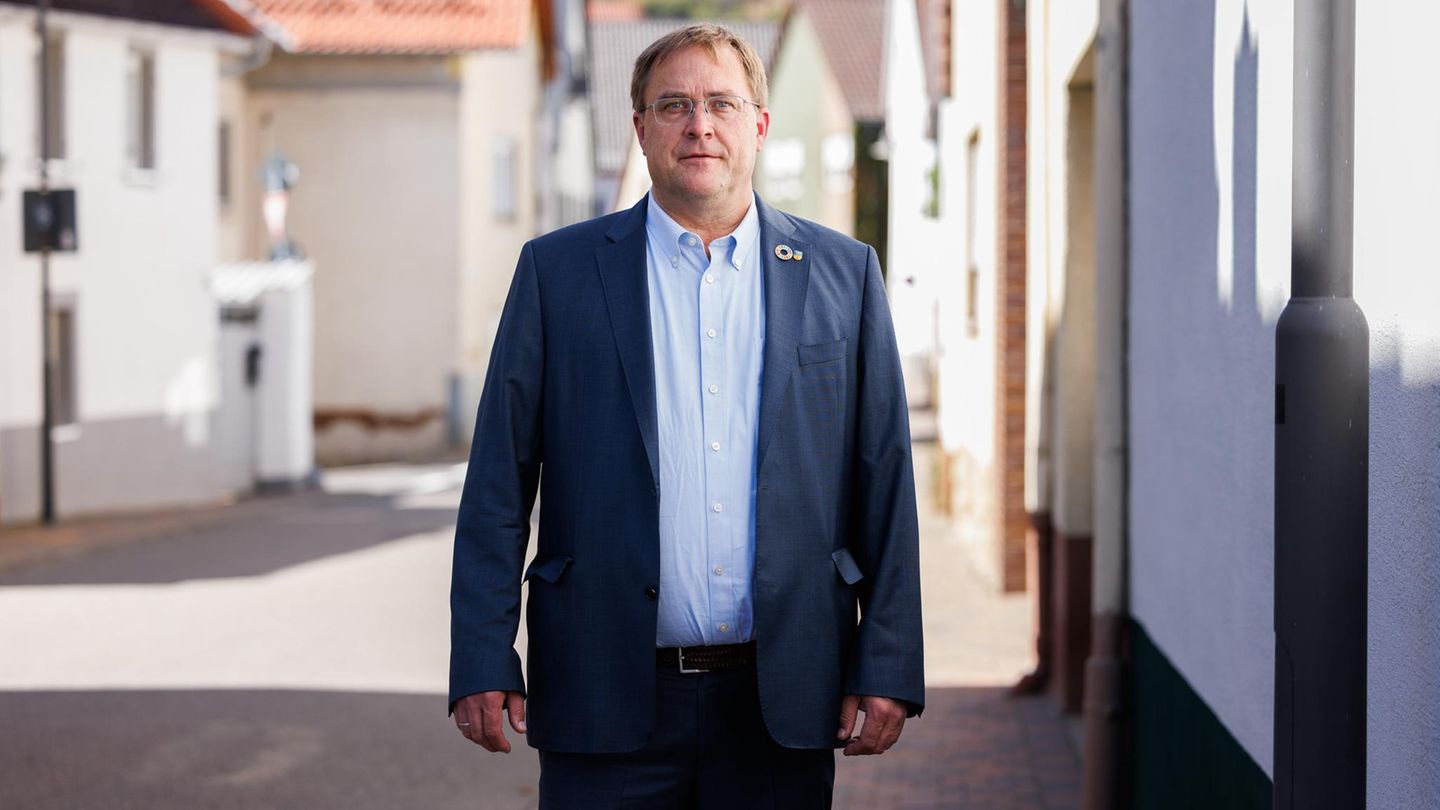The project, whose formal name is Comprehensive Approach Regime against Organized Crimeobtained half a sanction in the Chamber of Deputies with broad consensus (137 to 92, the rejections were exclusively Union for the Homeland and the Left Front) which was reflected in the Senate session with the presence of legislators from the UCR, the PRO and La Libertad Avanza.
To the plenary session of the commissions Home Security and of Justice and Criminal Affairs two officials attended: Carlos Alberto Manfroni, head of the Cabinet of Advisors Unit of the Ministry of National Security, and Pablo Cococcioni, Minister of Security of the province of Santa Fe.
The last intervention within the body of senators was one of the most representative of the degree of consensus that the project has: the Riojan Juan Carlos Pagotto (Freedom Advances) He pointed out that “I could argue about the figure of illicit association, but we are facing an absolutely extraordinary situation where crime has achieved methods that go above the State” and reiterated that “This probably has its mistakes but we have to walk“. Likewise, he opined that “narcoterrorism is a reality in Latin America” and “The situation in Nicaragua has emerged in Rosario, Villa 1-11-14 and in several other places.“.
On the other hand, the only dissonant voice was that of a guest: Marcelo Seghini, director of the Center for Defense and Security Studies. The specialist pointed out deficiencies in the project that obtained half a sanction and that are needed to design national security strategies, such as “approaching the drug issue from a comprehensive approach and seeing substance consumption as a health problem” or “economic, financial and institutional dimension of these criminal acts: it says nothing about money laundering and the probable penetration of drug trafficking into the structures of the State.“Seghini was not asked any questions of any kind.
Carlos Manfroni
Carlos Manfroni, along with senators Juan Carlos Pagotto and Carolina Losada.
Senate
Anti-Mafia Law: interventions in the Senate
Carlos Manfroni He began his speech by pointing out that “For special needs we require special legislation. We have a phenomenon in Argentina that we had not experienced a few years ago, which is the phenomenon of mafias and organized criminal societies.” Then, he said that “This law is essential to us because we need these powers“The Ministry of Security, the federal and provincial forces need it, and society as a whole demands it.”
Later, he projected that “It is true that in Rosario we have been able to advance without yet having an instrument like this, “but it is also true that if we had had this instrument we would have been much more advanced in the task and we would be close to finishing it.” “I ask you to please grant us this benefit”he reiterated.
To define that a person joins a mafiapointed out that “it can be determined when it performs acts consistent with what the law stipulates or when links have been proven with people who carry out these acts“. He also made reference to one of the most conflictive points of the project: the preventive seizure. “When we preventively seize a cell phone, a car or merchandise of any kind, if the person is later dismissed or acquitted, the property that is returned is already obsolete,” he said, adding that “The most fair thing is for the State to compensate according to the value that the good would have at that moment or with the corresponding update”.
In turn, Pablo Cococcioni recognized that “Initially we had reservations but now we support this project, which we find useful, timely and indispensable today to engage in a serious fight against criminal organizations” and appreciated that it was incorporated that “prison searches are ordered with a mere administrative authorization, that is, without a court order because there is no expectation of privacy.”
In this framework, he considered that the collectivization of sentences is “the most important point and the greatest success” and, without mentioning it, he referred to the case of the drug trafficker Esteban Lindor Alvaradowho was sentenced to 5 years in prison for money laundering: “It is difficult to prove authorship and criminal participation in each and every one of the crimes that your organization ordered to be committed.“Fighting seriously against criminal organizations requires extraordinary tools to be able to attribute collectively,” he added.
Pablo Cococcioni.jpg

Pablo Cococcioni, Minister of Security of Santa Fe.
Anti-Mafia Law: the most important points of the project
Within the 16 articles that make up the Comprehensive Approach against Organized Crime project, the following points stand out:
- Definition of criminal organization: those associations of three or more people who commit the crimes of illicit drug trafficking, money laundering, homicides, injuries, child pornography, illegitimate deprivation of liberty, kidnapping, coercion, threats, extortion, human trafficking, trafficking organs, public intimidation, fires, havoc and illegal possession of weapons and/or explosives.
- Other definitions of criminal organization: when “its purpose is to provoke fear in the executive, legislative or judicial authorities”, when “the mechanisms established to enforce the law are notoriously insufficient to stop a chain of criminal acts”, or when “it is threatened by the actions of members of one or more organizations with similar objectives the real property of the National State”.
- Equal sentences for all members of the criminal organization: Each member must serve the maximum sentence corresponding to the most serious crime committed by any other member of the criminal organization.
- “Area Subject to Special Investigation”: Emergency action mechanisms are established in territories that are considered priority.
- Anticipated confiscation of any property that “presumably” is the product of the activities described in the law. Even without a conviction, these assets will become the domain of the corresponding national and provincial State.
- Powers of federal forces: within the framework of this law, federal forces can detain a person for up to 48 hours to carry out inquiries, seize merchandise, carry out searches in penitentiary establishments, immobilize assets and intercept “telephone calls.” , social media messaging, virtual platforms and other forms of communication.”
Fernando Brovelli Report.-
Source: Ambito
I am a 24-year-old writer and journalist who has been working in the news industry for the past two years. I write primarily about market news, so if you’re looking for insights into what’s going on in the stock market or economic indicators, you’ve come to the right place. I also dabble in writing articles on lifestyle trends and pop culture news.




